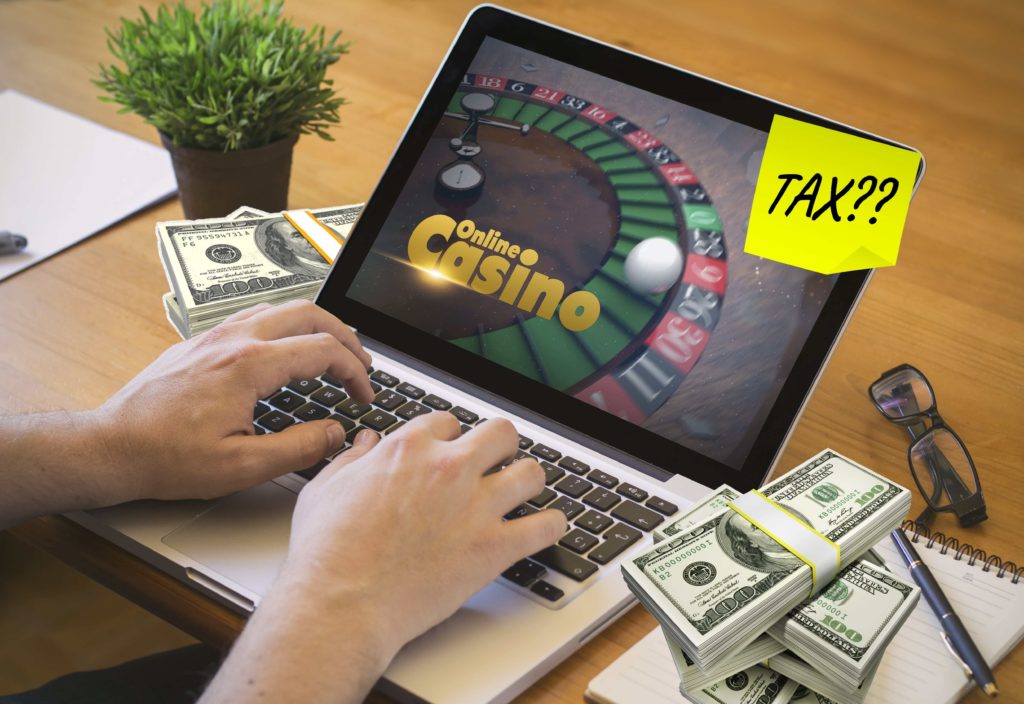There is no gambling winnings tax in Canada if you are a recreational gambler. The Canadian Revenue Agency generally keeps its hands off any money earned through gambling. We use the term “generally” because there are exceptions to the rule. In the eyes of the taxman, gamblers are divided into two groups:
Here is a table that shows tax status for both recreational and professional gamblers.
| Form of Gambling | Tax Status for Recreational Gamblers | Tax Status for Professional Gamblers |
| Land-Based Casino | Non-Taxable | Taxable |
| Online Casino | Non-Taxable | Taxable |
| Sports Betting | Non-Taxable | Taxable |
| Bingo | Non-Taxable | Taxable |
| Lottery | Non-Taxable | Non-Taxable |
| Horse Racing | Non-Taxable | Taxable |
| Poker | Non-Taxable | Taxable |
| Pools/Pari-Mutuel | Non-Taxable | Taxable |
| Raffles | Non-Taxable | Non-Taxable |
| Pull-Tabs | Non-Taxable | Non-Taxable |
| Scratch ‘n Win | Non-Taxable | Non-Taxable |
| Fantasy Sports | Non-Taxable | Taxable |
| eSports | Non-Taxable | Taxable |
Recreational Gamblers
The overwhelming majority of Canadian gamblers are classified as recreational gamblers. They might buy lottery tickets, play casino games, or bet on sports, among other things. They might win, lose, or break even. It doesn’t matter as long as their gambling isn’t a primary and ongoing source of income.
Professional Gamblers
Professional gamblers treat gambling like it’s a business. Typically, professionals use gambling as their main source of income. Daniel “Kid Poker” Negreanu is an example of this. He’s made tens of millions of dollars grinding it out at the poker table. However, earning vast amounts of money through gambling doesn’t necessarily make one a professional gambler. Nor does spending a lot of time gambling. But, combine spending a lot of time gambling with consistently eking out a profit, and you may fit the bill.
Do You Pay Tax on Gambling Winnings?
If you win big at a casino or on the lottery, you’re probably going to ask yourself: “Do I have to pay taxes on these gambling winnings?”. The answer depends on whether you are a professional gambler or a recreational gambler. Canadian recreational gamblers do not pay tax on gambling winnings. It matters not if they win a few thousand dollars at a casino blackjack table or win tens of millions of dollars playing the lottery. It’s not subject to taxation.
Recreational gamblers don’t need to pay any tax.
Professional gamblers are a different story. They must declare and pay tax on their gambling winnings. At the same time, they can also write off their gambling losses and other associated expenses. Come tax time; they must fill out and submit a T5 slip. Failing to do so can result in a hefty fine. The reality is that the Canada Revenue Agency is hesitant to audit professional gamblers.
Of course, we’re only talking about tax for gambling winnings in Canada. Recreational and professional Canadian gamblers who gamble in other countries are at the mercy of their host country’s gambling income tax laws. For instance, Canadians who win over $1,200 in an American casino must pay a 30% tax, which is usually withheld at the cashier. The good news is that there is a casino tax refund for Canadians. The bad news is that you need to prove losses or related expenses to qualify for it. You also need to go through a significant amount of red tape, which includes applying for an American tax number. It might not be a quick and easy process, but it’s worth it in some cases.
You should also note that we are discussing this topic from a gambler’s point of view. The taxation laws for gambling operators are another thing altogether.
At What Point Does Canada Revenue Agency Consider You a Professional Gambler?
The Income Tax Act does not explicitly define when a recreational gambler turns into a professional gambler. There have only been a handful of clear-cut cases in which the taxman classified a gambler as a professional. It seems that you would need to be a profitable full-time gambler for a few years before the Canada Revenue Agency would even begin to consider classifying you as a professional. In many cases, gamblers have tried to claim they are professionals to write off their losses. Naturally, the taxman doesn’t take too kindly to those claims.
Are Gambling Losses Tax-Deductible?
Once again, the answer to this question depends on what type of gambler you are. Gambling losses are not tax-deductible if you are a recreational gambler. This only seems fair considering that Canada doesn’t tax recreational gambling winnings. On the flip side, professional gamblers can write off gambling losses. This is also reasonable since they must pay tax on their gambling winnings. Like most other businesses, they can also deduct other associated expenses such as travel and tournament fees.
Are Lottery Winnings Treated Differently?
Unlike other forms of gambling such as poker, blackjack, and fantasy sports, which require a certain amount of skill, lotteries are based entirely on luck. The only way of increasing your odds of winning the lottery is by purchasing more number combinations. The taxman considers lottery wins as windfalls. As such, not even professional gamblers have to pay taxes on lottery winnings.
Gambling Income Tax: Are There Different Rules for Online and Offline Players?
No. Gambling income tax rules are the same for all forms of legal gambling regardless of whether it’s conducted online or in land-based establishments. Professional gamblers in Canada Must pay tax on their online gambling winnings and their offline winnings. Canadian recreational gamblers’ winnings are exempt from taxation both online and offline.
Do Gambling Winnings Tax Rules in Canada Vary From Region to Region?
The provinces and territories have different gambling laws. However, the tax rules for gambling winnings are the same across Canada. Professional gamblers must pay tax on their winnings while recreational players are entirely exempt. What a country to live in!
You might also like:


